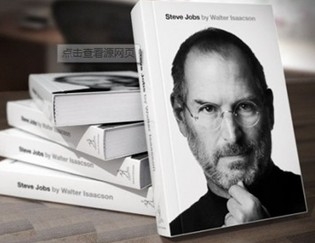Publicity Blast
爆炸式宣传
Over the years Steve Jobs would become the grand master of product launches. In the case of the Macintosh, the astonishing Ridley Scott ad was just one of the ingredients. Another part of the recipe was media coverage. Jobs found ways to ignite blasts of publicity that were so powerful the frenzy would feed on itself, like a chain reaction. It was a phenomenon that he would be able to replicate whenever there was a big product launch, from the Macintosh in 1984 to the iPad in 2010. Like a conjurer, he could pull the trick off over and over again, even after journalists had seen it happen a dozen times and knew how it was done. Some of the moves he had learned from Regis McKenna, who was a pro at cultivating and stroking prideful reporters. But Jobs had his own intuitive sense of how to stoke the excitement, manipulate the competitive instincts of journalists, and trade exclusive access for lavish treatment.
多年来,史蒂夫·乔布斯已成为产品发布大师。以麦金塔电脑的发布为例,雷德利·斯科特的惊人广告仅仅是产品发布的一部分,还有一部分是媒体报道。乔布斯知道如何激发媒体进行爆炸式宣传,这种宣传方式威力强大,会像连锁反应一样越来越疯狂。只要有重要的产品发布,乔布斯就会经常重复使用这一方法,从1984年的麦金塔电脑到2010年的iPad发布都是如此,这已经成为一种现象。他就像一个魔术师,能够一遍又一遍地施用相同的伎俩,即便记者们已经目睹多次,也知道事情会如何发展。有一些窍门是他从里吉斯·麦肯纳那里学来的,麦肯纳擅长引导和激发自负的记者。但是,在如何挑起记者的兴奋之情、操纵新闻工作者的竞争本能和通过透露独家新闻获得丰厚回报方面,乔布斯也有着自己的直觉。
In December 1983 he took his elfin engineering wizards, Andy Hertzfeld and Burrell Smith, to New York to visit Newsweek to pitch a story on “the kids who created the Mac.” After giving a demo of the Macintosh, they were taken upstairs to meet Katharine Graham, the legendary proprietor, who had an insatiable interest in whatever was new. Afterward the magazine sent its technology columnist and a photographer to spend time in Palo Alto with Hertzfeld and Smith. The result was a flattering and smart four-page profile of the two of them, with pictures that made them look like cherubim of a new age. The article quoted Smith saying what he wanted to do next: “I want to build the computer of the 90’s. Only I want to do it tomorrow.” The article also described the mix of volatility and charisma displayed by his boss: “Jobs sometimes defends his ideas with highly vocal displays of temper that aren’t always bluster; rumor has it that he has threatened to fire employees for insisting that his computers should have cursor keys, a feature that Jobs considers obsolete. But when he is on his best behavior, Jobs is a curious blend of charm and impatience, oscillating between shrewd reserve and his favorite expression of enthusiasm: ‘Insanely great.’”
1983年12月,他带着自己的天才工程师安迪·赫茨菲尔德和伯勒尔·史密斯,前往纽约走访《新闻周刊》,想让对方写一篇关于“创造麦金塔电脑的小伙子们”的报道。在进行了麦金塔电脑的演示之后,他们被带上楼同凯瑟琳·格雷厄姆(KatherineGraham)见面。格雷厄姆是媒体界的一位传奇人物,她对所有新生事物都充满莫大的兴趣。之后,《新闻周刊》杂志派遣自己的科技专栏作家和一位摄影师前往帕洛奥图,与赫茨菲尔德和史密斯共度一段时光。最后发表的报道共4页,介绍了这两位工程师,溢美之情尽显,此外还配上两人在家中的图片,令他们看上去就像是新时代的天使。文章援引史密斯的话来表述他接下来要做的事:“我想要打造90年代的计算机,明天就开始。”文章还描写了两人的那位老板的反复无常和领袖魅力。“乔布斯有时会发怒,髙声为自己的想法辩护,但并不会动不动就咆哮;乔布斯认为光标键已经过时,有传言称,他曾因员工坚持表示苹果电脑应该有光标键而威胁要开除对方。但是,当乔布斯处于最佳状态时,他是魅力和急躁的奇特融合体,时而含蓄,时而酷毙了。而‘酷毙了’(InsanelyGreat)正是他最喜欢用来表达自己激情的短语。”
The technology writer Steven Levy, who was then working for Rolling Stone, came to interview Jobs, who urged him to convince the magazine’s publisher to put the Macintosh team on the cover of the magazine. “The chances of Jann Wenner agreeing to displace Sting in favor of a bunch of computer nerds were approximately one in a googolplex,” Levy thought, correctly. Jobs took Levy to a pizza joint and pressed the case: Rolling Stone was “on the ropes, running crummy articles, looking desperately for new topics and new audiences. The Mac could be its salvation!” Levy pushed back. Rolling Stone was actually good, he said, and he asked Jobs if he had read it recently. Jobs said that he had, an article about MTV that was “a piece of shit.” Levy replied that he had written that article. Jobs, to his credit, didn’t back away from the assessment. Instead he turned philosophical as he talked about the Macintosh. We are constantly benefiting from advances that went before us and taking things that people before us developed, he said. “It’s a wonderful, ecstatic feeling to create something that puts it back in the pool of human experience and knowledge.”
当时还在《滚石》杂志工作的科技作家斯蒂芬·列维(StevenLevy)来采访乔布斯,乔布斯立即要求该杂志将麦金塔团队登在封面上。“简·温纳(JajinWerner)同意换下斯汀(Police乐队主唱)而让一群电脑狂人登上封面的可能性几乎为零。”列维如此认为。他是对的。乔布斯带列维去吃比萨,谈论对麦金塔电脑团队的报道:“《滚石》杂志的处境岌岌可危,净登些烂文章,它正在拼命发掘新的话题和受众。麦金塔电脑就是《滚石》的救命稻草!”列维反驳说,《滚石》杂志事实上很好,并问乔布斯最近真的读过《滚石》吗?乔布斯说自己在飞机上读了上面一篇关于MTV的文章,他认为这篇文章就是“一坨狗屎”。列维回答说,那正是自己写的文章。值得赞扬的是,乔布斯并没有转换话题停止评论,尽管他确实换了个目标,开始抨击《时代》杂志一年前对他的“肆意捏造”。接着,在谈论麦金塔电脑的时候,他又变得豁达了。他表示,人类一直都在从超前的知识进步中获益,并且在使用超前者所研发出来的东西。“能够创造出在人类经验和知识史上占有一席之地的东西,是一种美妙和令人欣喜若狂的感觉。”
Levy’s story didn’t make it to the cover. But in the future, every major product launch that Jobs was involved in—at NeXT, at Pixar, and years later when he returned to Apple—would end up on the cover of either Time, Newsweek, or Business Week.
列维的报道并没有登上《滚石》的封面。但是后来,乔布斯参与的所有主要产品的发布——无论是在NeXT、皮克斯,还是多年后重回苹果公司——都登上了《时代》杂志、《新闻周刊》或《商业周刊》的封面。













